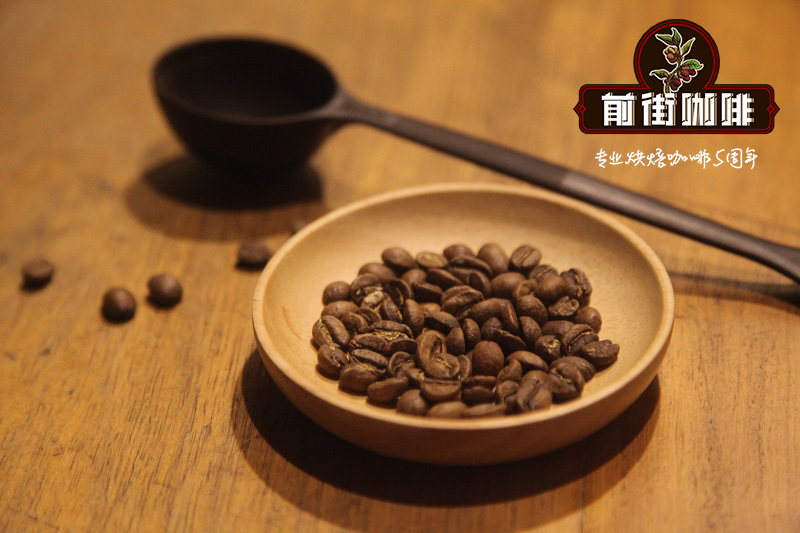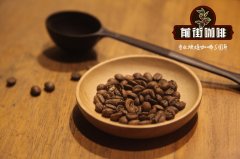What are the characteristics of African Ugandan coffee? how can Ugandan coffee be tasted like this?

Professional coffee knowledge exchange more coffee bean information please follow the coffee workshop (Wechat official account cafe_style)
Qianjie-Ugandan Coffee introduction
If Ethiopia is the birthplace of Arabica coffee, then Uganda is the hometown of Luodou. During the colonial era, with the encouragement of the British, Uganda began to widely cultivate low-altitude species of Robusta. Today, Uganda has become the second largest exporter of Robusta in the world. Eighty-five percent of the coffee grown in Uganda is robusta coffee.
Although it is a coffee-growing country dominated by Robusta, Uganda also produces high-quality Arabica coffee, and its Akabica cultivation history can be traced back to a hundred years ago. Today, most of the country's Arabica is grown in the southeast of Mount Elgon, 4321 meters above sea level, and some on the border between Uganda and Kenya. Coffee, bananas, peanuts and other plants grow in the mode of mixed agriculture, and tall fruit trees become shade trees for coffee, thus ensuring the yield of coffee.
Coffee has long been Uganda's main export, but in recent years it has been replaced by gold, which this year exceeded the $1 billion mark in June. Uganda is also Africa's largest exporter of coffee, followed by Ethiopia.
Even among the world's largest coffee growers and exporters, Uganda still widely uses traditional small-scale peasant-style coffee processing methods due to backward industrial levels, infrastructure and traditional local attitudes. This poses a great challenge to the quality of coffee production: although it is adjacent to boutique coffee producers such as Kenya and Ethiopia, Uganda has not had a particularly well-known variety of specialty coffee.
Ugandan coffee is mellow and full-bodied, with charming fruit aromas and obvious layers of flavor. Arabica coffee in Uganda is dominated by traditional varieties such as Kent, Itsuka and SL-14,SL-28, while Robusta has two varieties: & # 39; Nganda Nganda' and & # 39; Erecta & # 39;
Step 1: smell incense
When brewing a cup of coffee, there is always a strong fragrance coming to the nostrils. Carefully enjoy the process of changing the pure fragrance from thick to light.
Step 2: watch the color
Different coffees have different colors. Pay attention to observe the color of coffee before tasting, which is an important clue to reveal the quality of coffee to you. Generally speaking, the best coffee is dark brown, rather than dark and bottomless.
Step 3: taste
When tasting coffee, you should first suck, so that the coffee can fill the whole mouth, and the coffee in the mouth is sweet, slightly bitter, slightly sour and not astringent. Then take a sip and slowly taste it, activate the taste buds on the tip of the tongue, and slowly experience the various flavors of coffee, including acidity, mellow thickness, sweetness and astringency.
1. Acidity
The degree to which the entrance of the coffee makes you drool indicates the acidity of the coffee. It is simply divided into high, medium and low.
2. Alcohol thickness
Refers to the weight of coffee liquid in the mouth. Imagine it with water, skim milk, and whole milk. It is simply divided into high, medium and low. You can also use fruit juice to imagine that mango juice is thick, apple juice is medium, lemon juice is light, again emphasize that the thickness of alcohol is not directly related to the final flavor.
Knowledge: Uganda, like Congo, is also the birthplace of Rodou. As Africa's second-largest coffee exporter, Uganda's Robusta exports account for 7% of the world's output.
In short: Qianjie is a coffee research hall, happy to share the knowledge about coffee with you, we share unreservedly just to make more friends fall in love with coffee, and there will be three low-discount coffee activities every month. The reason is that Qianjie wants to make more friends drink the best coffee at the lowest price, which has been Qianjie's tenet for 6 years!
END
Important Notice :
前街咖啡 FrontStreet Coffee has moved to new addredd:
FrontStreet Coffee Address: 315,Donghua East Road,GuangZhou
Tel:020 38364473
- Prev

What coffee beans are produced in Kenya? are they fine coffee? I only recognize the grade of Kenyan coffee beans as AA
Professional coffee knowledge exchange more coffee bean information please follow the coffee workshop (Wechat official account cafe_style) front street-Kenya Coffee introduction Kenya Coffee has many followers in the boutique coffee industry, Kenya AA has an extraordinary popularity. Kenyan coffee has a multi-layered taste and acidity of fruit juice, rich berry flavors, solid body, and
- Next

Introduction of Ugandan coffee beans is the drying of Ugandan coffee sun-treated? what's the flavor addition?
Professional coffee knowledge exchange more coffee bean information please follow the coffee workshop (Wechat official account cafe_style) front street-Uganda Coffee introduction Uganda is located in East Africa, across the equator, east by Kenya, south by Tanzania and Rwanda, west by Congo, north by South Sudan, with a total area of 241550 square kilometers. Most areas belong to tropical plateau climate and savanna gas.
Related
- Beginners will see the "Coffee pull flower" guide!
- What is the difference between ice blog purified milk and ordinary milk coffee?
- Why is the Philippines the largest producer of crops in Liberia?
- For coffee extraction, should the fine powder be retained?
- How does extracted espresso fill pressed powder? How much strength does it take to press the powder?
- How to make jasmine cold extract coffee? Is the jasmine + latte good?
- Will this little toy really make the coffee taste better? How does Lily Drip affect coffee extraction?
- Will the action of slapping the filter cup also affect coffee extraction?
- What's the difference between powder-to-water ratio and powder-to-liquid ratio?
- What is the Ethiopian local species? What does it have to do with Heirloom native species?

